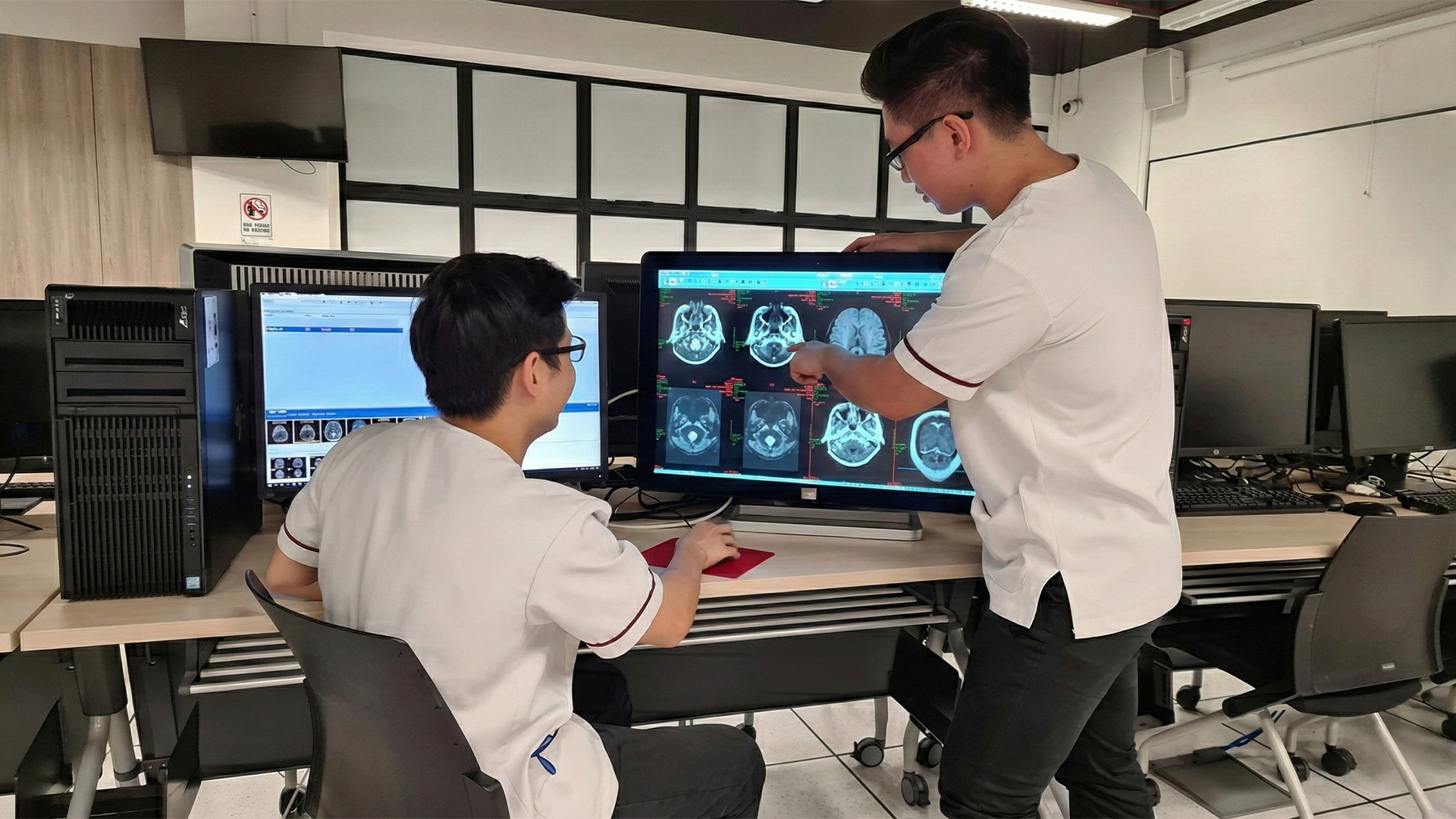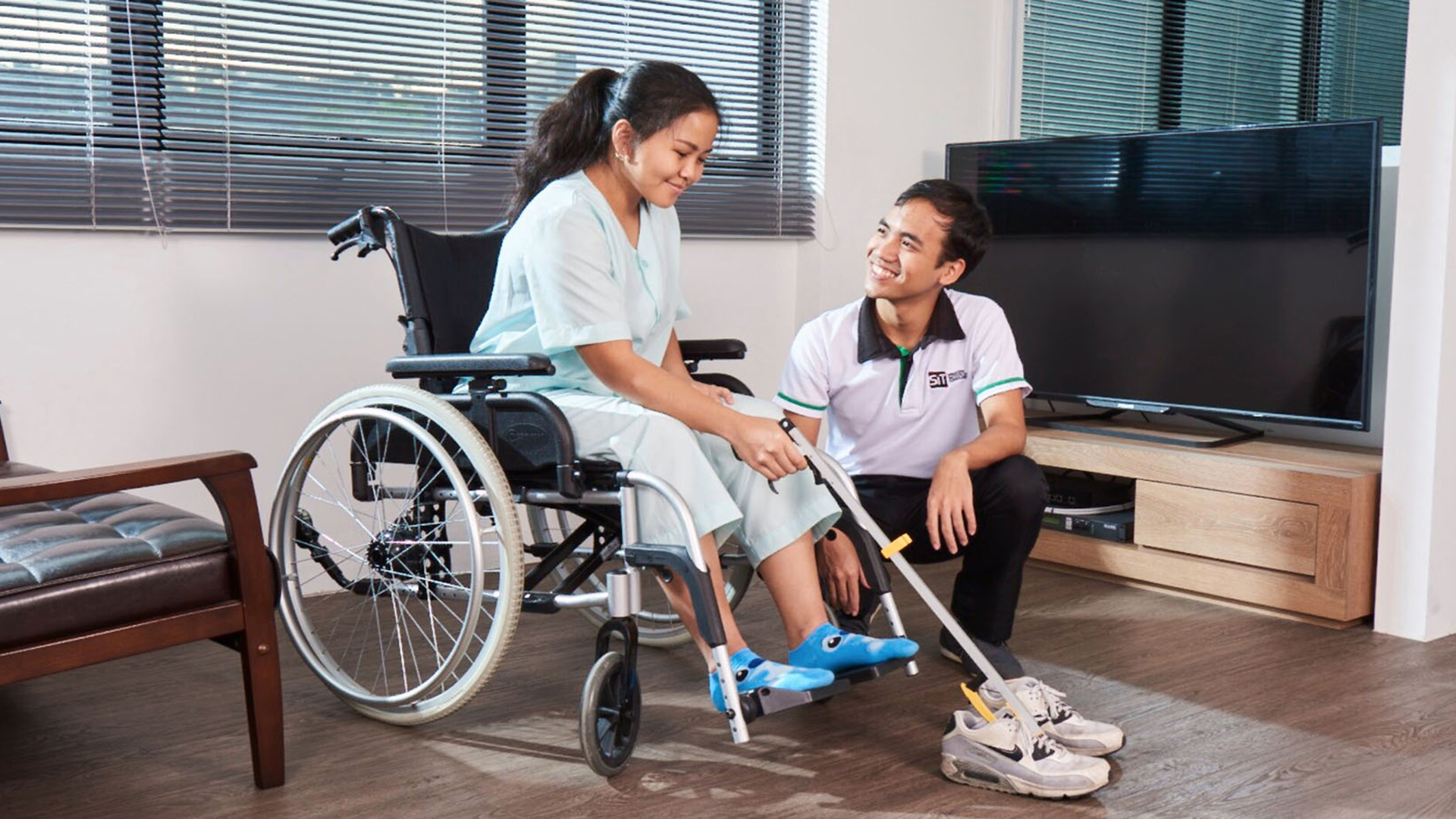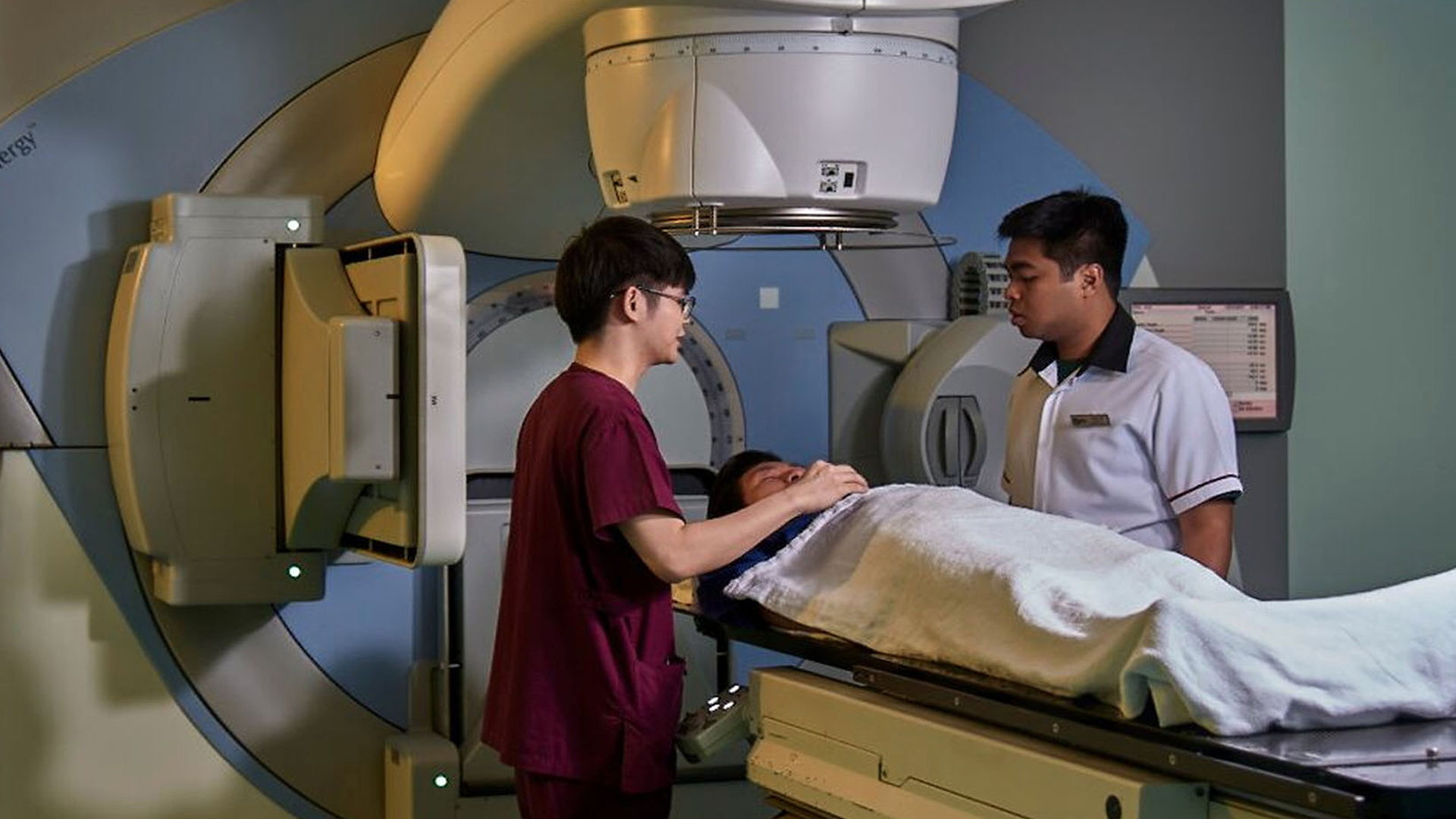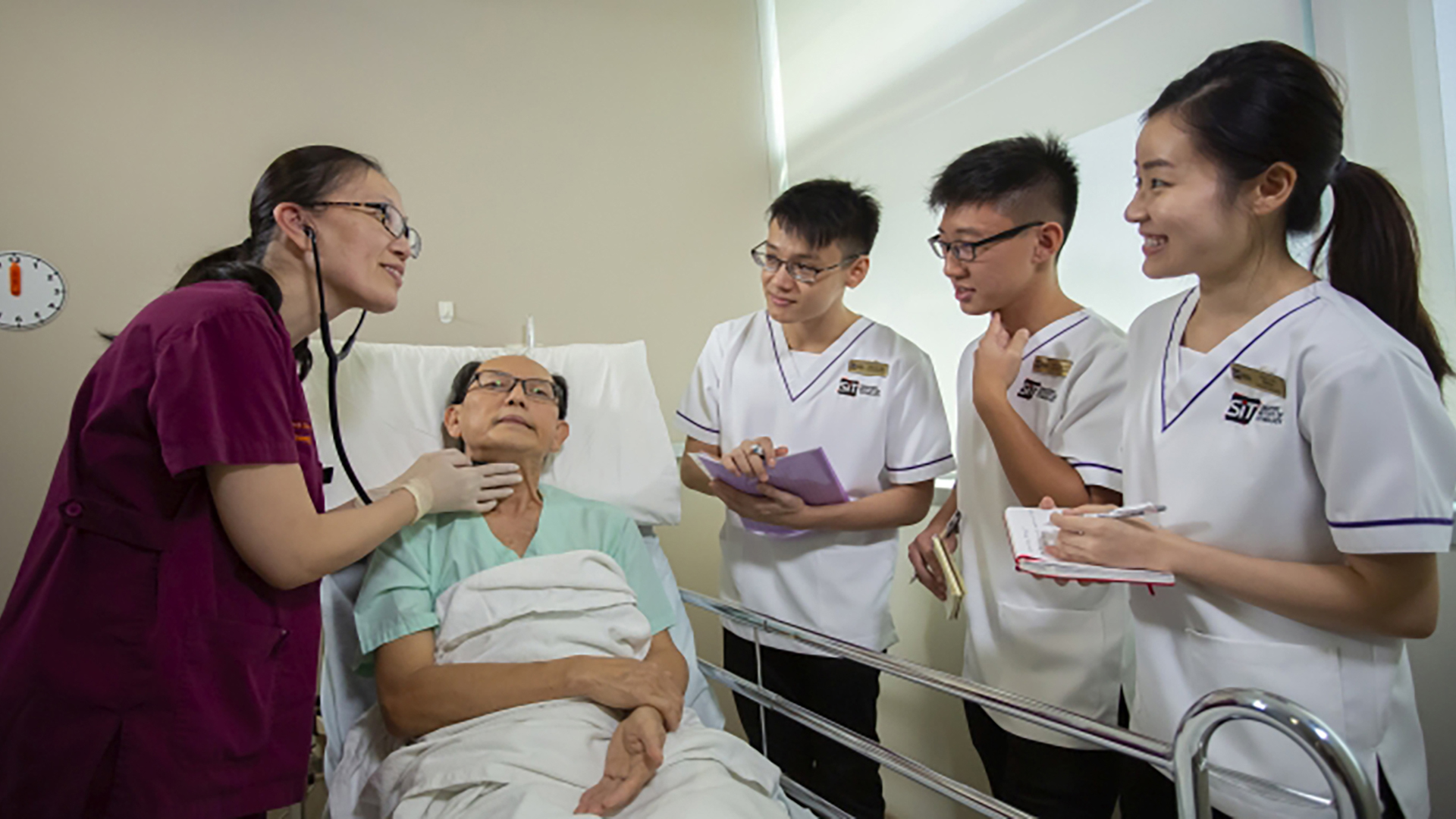![[FA] SIT One SITizen Alumni Initiative_Web banner_1244px x 688px.jpg](/sites/default/files/2024-12/%5BFA%5D%20%20SIT%20One%20SITizen%20Alumni%20Initiative_Web%20banner_1244px%20x%20688px.jpg)
Programme Overview
The Bachelor of Science with Honours in Dietetics and Nutrition is a four-year, direct honours degree programme that addresses the growing demand for dietetic manpower in hospitals and intermediate long-term care (ILTC) settings in Singapore.
As the first dietetics degree programme to be offered by an autonomous university in Singapore, this programme will provide you with evidence-based theoretical knowledge, research skills, and practical experience across all domains of dietetic practice (individual clinical case management, community and public health nutrition, and food service management).
The programme is designed to meet the academic requirements and clinical competencies for graduate entry-level professional dietitians, based on international educational standards for professional dietetic practice. The curriculum is developed in close consultation with the dietetics department from major healthcare clusters in Singapore to equip you with relevant knowledge and specialised skills in all domains of dietetic practice.
Do note that the healthcare staff guidelines and requirements that apply to healthcare institutions also apply to Health Sciences students. Non-compliance with these guidelines may affect your ability in meeting course requirements, graduating, obtaining registration or employment, and fulfilling bond obligations. It is crucial to adhere to these guidelines to ensure successful completion of your studies and future professional opportunities in the healthcare field.
Curriculum Highlights
- Nutrition Throughout the Lifespan
- Nutritional Assessment
- Nutrition, Health, and Disease
- Community and Public Health Nutrition
- Medical Nutrition Therapy
- Communication Skills and Nutritional Counselling
- Honours Thesis
- 32-week Clinical Practice Education
Clinical Practice Education
All Dietetics and Nutrition students need to undergo around 1200 hours of clinical practice education (CPE) across various clinical settings. Such clinical placements prepare students for the real-world clinical practice. Therefore, students get to apply theoretical and clinical knowledge and build up their confidence in clinical skills. Students need to pass all clinical placements to graduate from the programme.
Students may be eligible for an exit award "Bachelor of Science in Care Sciences" if they fail to meet clinical practice education module requirements for the award of an honours degree, subject to fulfilling conditions for the exit award.
Career Options
Graduates can be employed as dietitians in a variety of settings, such as:
- Public and Private Hospitals
- Community Hospitals and Polyclinics
- Intermediate and Long-Term Care Organisations, including Nursing Homes and Rehabilitation Centres
- Food Services
- Private Practice
Programme Structure (AY2026/27)*
Programme Structure (AY2025/26)
| Module Title | Credits |
|---|---|
| Biochemistry | 6 |
| Anatomy and Physiology 1 | 6 |
| Health Systems - Singapore’s Perspectives | 6 |
| Psychological and Sociological Perspectives for Health Sciences | 6 |
| Human Nutrition | 6 |
| Individual and Environmental Influences on Eating Behaviours | 6 |
| Anatomy and Physiology 2 | 6 |
| Food Science | 6 |
| Nutrition Throughout the Lifespan | 6 |
| Nutritional Assessment | 12 |
| Nutrition, Health and Disease | 12 |
| Pathophysiology and Pharmacology | 6 |
| Food Systems and Food Service Management | 12 |
| Foundational Medical Nutrition Therapy | 6 |
| Health Research Methods | 6 |
| Food Service Management | 6 |
| Intermediate Medical Nutrition Therapy | 12 |
| Community and Public Health Nutrition | 12 |
| Honours Thesis Proposal | 2 |
| Advanced Medical Nutrition Therapy | 12 |
| Communication Skills and Nutritional Counselling in Different Populations | 12 |
| Professionalism, Ethics and the Law | 6 |
| Community and Public Health Nutrition | 6 |
| Global Health | 3 |
| Dietetics Leadership and Management | 6 |
| Clinical Placement 1 | 6 |
| Clinical Placement 2 | 12 |
| Honours Thesis | 16 |
* The programme structure is subject to change without prior notice. SIT regularly reviews its curriculum to ensure that it remains industry-relevant and prepares our students for the evolving needs of industry.
Eligibility and Exemption
SIT selects candidates for this programme using an aptitude-based approach that considers passion and suitability for the profession, academic achievement and co-curricular involvement. Shortlisted candidates will be invited for the Health Sciences Admission Exercise, which consists of an essay and an interview.
Listed below are the relevant admission criteria:
A Levels
Obtained a good pass in two H2/HL subjects (Biology, Chemistry, Physics, Sports, Exercise and Health Science, and Mathematics), and also offered General Paper or Knowledge & Inquiry in the same sitting while satisfying Mother Tongue requirements.
Polytechnic Diplomas
- Completed a relevant full-time local Polytechnic diploma. For the detailed list, please refer to Relevant List of Diplomas.
- Module exemptions will be considered on a case-by-case basis.
- Diplomas that are not listed may be considered on a case-by-case basis. Applicants will be assessed for admissions based on a holistic approach if they meet the following criteria:
- Obtained a Science-related full-time local Polytechnic diploma and/or
- Has acquired relevant full-time work experience of 1-2 years.
International Baccalaureate
Obtained a good pass in two of the following HL subjects: Biology, Chemistry, Physics, Mathematics or Sports, Exercise and Health Science; while satisfying Mother Tongue requirements.
Other Local Diplomas
NUS High School Diploma Prerequisites
Obtained a good pass in two of the following subjects: Biology, Chemistry, Physics or Mathematics.
Other equivalent Year 12 qualifications are considered on a case-by-case basis.
Mandatory English Requirement
Applicants to the Allied Health Programmes are required to fulfil ONE of the following English requirements by application closing:
| Qualification | English Subject | Minimum Grade Required |
|---|---|---|
| GCE O Level | English as First Language | C5 |
| International English Language Testing System (IELTS - Academic Module) | International English Language Testing System (IELTS) | 7.0 for all components (Listening, Reading, Writing and Speaking) |
| TOEFL | TOEFL | At least 250 marks for computer-based test or 600 marks for paper-based test or 100 marks for internet-based test |
| OET | OET | Grade B and above |
| Polytechnic Foundation Programme (PFP) | English Modules | C+ |
| GCE A Level | General Paper/Knowledge & Inquiry | D |
| International Baccalaureate (IB) | SL ‘English A: Language & Literature’ OR SL ‘Literature & Performance’ | 4 |
| NUS High School Diploma | EL4101 or higher (EL5101, 6103) modules | C+ |
Applicants who hold a first degree from Singapore, Australia, Canada (except Quebec), New Zealand, Republic of Ireland, South Africa, United Kingdom, and the United States of America will be deemed to have fulfilled the stipulated English Language requirement for the programme.
Please refer to the Mandatory Medical Clearance for additional requirements.
Fees and Finances
Singapore Citizen
Permanent Resident
International Student
Industry Advisory Committee
The members of the Industry Advisory Committee for this programme are:
Head and Senior Consultant, Division of Rehabilitation Medicine, Department of Medicine, National University Hospital and Alexandra Hospital
Group Director, Sector Capability & Transformation Group, National Council of Social Service
Deputy Chief Allied Health Officer, Director-General of Health’s Office, Chief Allied Health Officer’s Office, Ministry of Health
Group Director, Allied Health, National University Health System
Executive Director, NHG Cares Services (Allied Health) and Deputy Group Chief Allied Health, National Healthcare Group
Group Chief Nurse, National Healthcare Group
Group Director, Group Allied Health, SingHealth
Department of Rehabilitation Medicine
Singapore General Hospital
Director, Allied Health, Woodlands Health
Chief Executive Officer, SPD





















